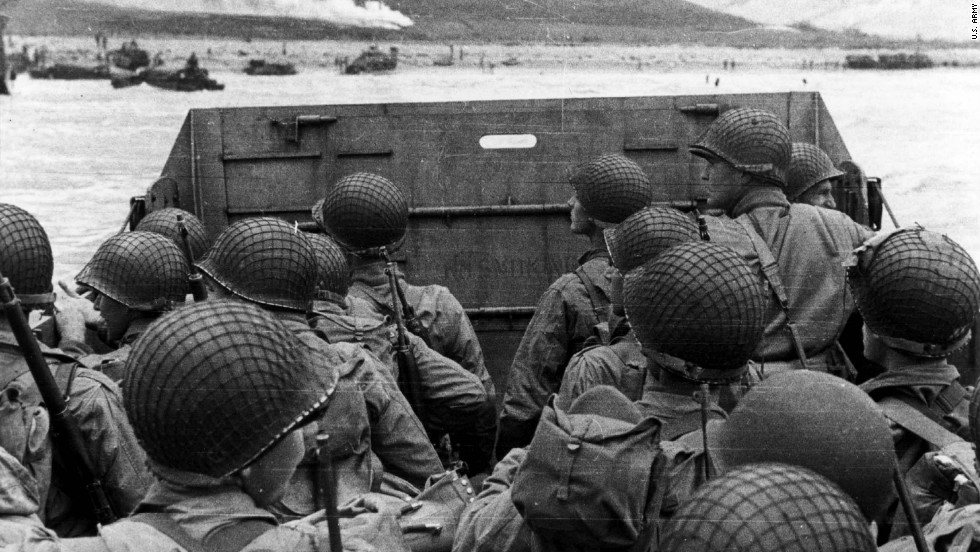Two years ago, I was in Normandy (on my LDS mission, which I absolutely adored) and spending all day every day strolling the streets of Caen. Oh, how I love that place. Of all the places I've lived, Normandy is definitely my favorite. That is the place I've ever felt most "at home" away from home. I could write pages and pages about all the reasons I love it there (and my secret desire to return), but that is not the focus of today's post.
It was particularly significant to me to spend the 70th anniversary of D-Day in Normandy itself. As you can imagine, it was a celebrated event. The entire summer was packed with activities and dedications and parades and memorials to commemorate the anniversary of such a magnificent, terrible, and awe-inspiring victory. Of course, as a missionary my participation was limited (rightly so), but I had many opportunities to see the effects of war, destruction, and restoration in a gorgeous place. I saw the marks of war that STILL scar beautiful Normandy. But I also saw the recovery and the reverence that it maintains. The similitude it has to the Atonement I found beautiful and touching.
Every D-Day, I take time to reflect on the symbolism of what the soldiers who raided les plages de Normandie called a "quiet journey". As they rode in the boats taking them to storm the beach, the soldiers were silent.
 |
| photo cred: http://www.cnn.com/2013/06/03/world/europe/d-day-fast-facts/ |
Doubtless, they were terrified. Terrified because death was so immanent. Terrified because the task they were assigned seemed so impossible. Terrified because they were so young... too young to die. It is unfortunate that the price of liberty always seems to be paid for by the innocent.
But I imagine that the terrified silence was also a reverent silence.
We hear all the time that "freedom isn't free", and I agree. But what I thought about today as I reviewed the events of that great and dreadful day 72 years ago was not necessarily the price that these young Allies paid for America, but the sacrifice they made to FREE OTHERS. While they may have chosen to think about loved ones whose pictures they held in their pockets, in reality, most were fighting to save strangers in a strange land. I don't want to idealize the attacks of the Allies (heaven knows it was not a smooth nor an easy /perfect/bloodless victory), but I do want to focus on the fact that in that moment they weren't fighting for themselves.
And they did it silently.
They were fighting to make a better future for someone else. For the French, the Polish, the Danish, and the German as well. They were not boasting about their heroism as they went off to literally save the world. They were silent. Theirs was a humble, selfless sacrifice.
As I read about (and get frustrated with) politics and world trauma and local catastrophes, I see a common thread tying many problems together: gone is the attitude of quietly building a better world for someone else; we want it to be better for us, now, regardless of futuristic consequences, and we want the credit for what little improvement we contribute.
#iamdoingsomethingamazingsogivemesomefame
Instead of taking accountability for our mistakes/neglect/poor judgment and CLEANING UP after ourselves, we are pushing the mess on to someone else in the future, but quick to grab the residual popularity.
If those D-Day soldiers had the same attitude ("I'm not interested in helping if it doesn't directly benefit me"), the mission would have failed. Maybe this is cynical of me... but if they had spent the morning publishing selfies about the amazing thing they were about to do, don't you think the sacredness would have been lost?
(And... is it rather hypocritical of me to be BLOGGING about it? Haha oh well :)
That summer, their purpose was not to help themselves.
Despite the turmoil and emotional scarring for the survivors, and life itself for the lost, I know the sacrifice they made for others DID benefit them. It benefited them more than anything they could have done for themselves.
The pattern holds true for us as well: if we focus on sacrificing for others, which may mean foregoing personal comfort without a guarantee that we will be compensated for our efforts, I know that the character that is developed by doing so will be more satisfied, happier, and grateful.
I need to work on that. I need to be less worried about what I'm going to get out of doing something for someone else, to stop thinking about whether or not the "pros" I can see with my pathetic mortal perspective outweigh the "cons", and just DO for others.
The attribute of GRATITUDE is one we always should strive to improve.
To the soldiers who stormed those sandy and intimidating beaches: I thank you.
To the leaders who led them: I thank you.
To the families who supported them: I thank you.
To the Europeans who welcomed them in: I thank you.
To the civilians who were hurt, killed, or worse during the rescue: I thank you.
But most of all...
To the God who continually delivers us: I thank thee.
At the end of every day (whether it is D-Day or not) I think it's best to trust in Him.
No comments:
Post a Comment